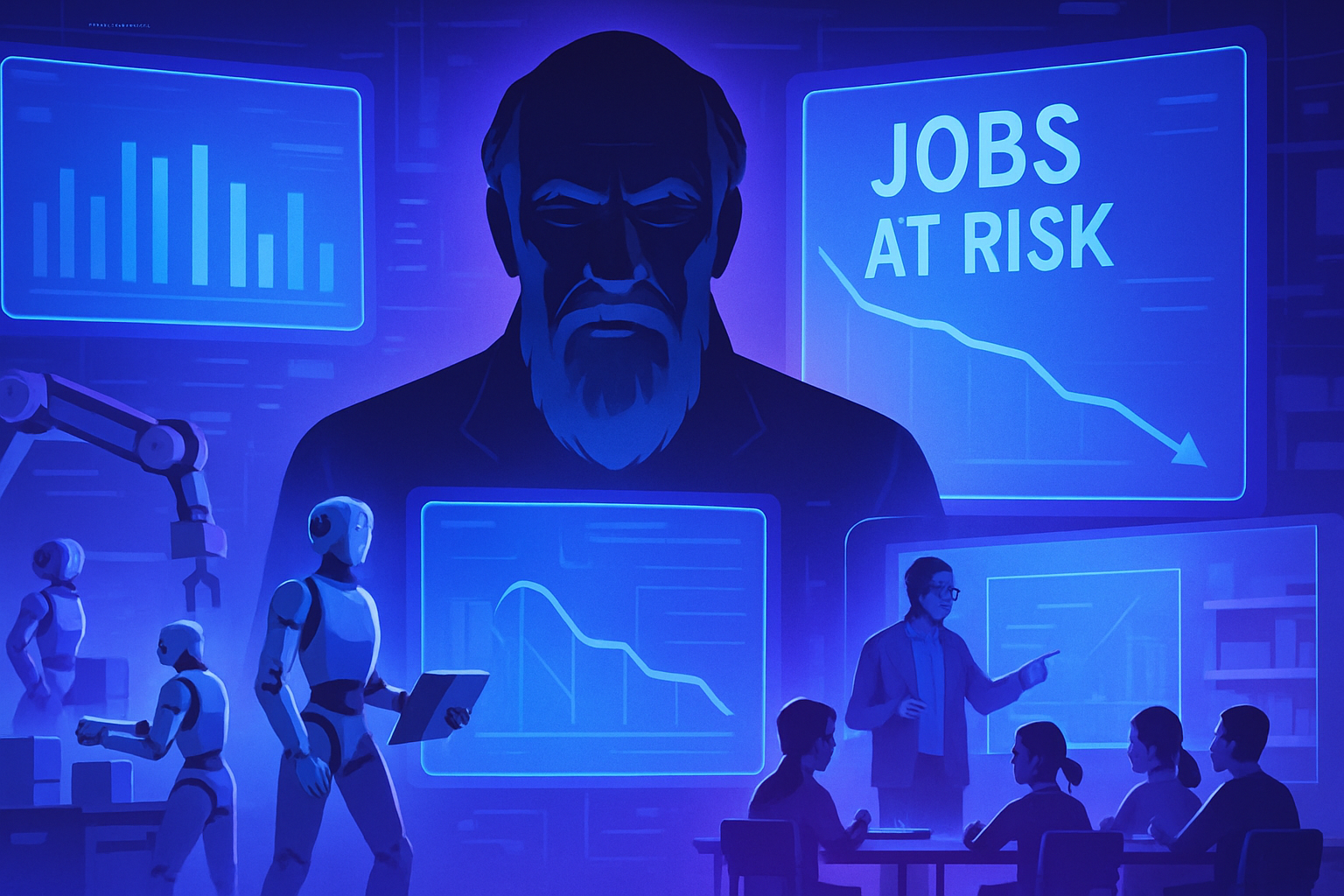The revolutionary Geoffrey Hinton raises awareness about technological changes. Entire professions are at risk of experiencing massive deindustrialization leading to unprecedented job losses. One aspect remains inviolable: certain human tasks are irreplaceable, thus preserving the very essence of our humanity. The jobs of the future are emerging against a backdrop of anxiety and a thirst for innovation.
Predictions from an AI giant
Geoffrey Hinton, often referred to as the father of artificial intelligence, expresses serious concerns about the future of work in the context of rapid AI development. Hinton warns that several professions may face a significant wave of unemployment resulting from increasing automation.
At-risk professions
The affected sectors include, in particular, those related to repetitive and predictable tasks. Jobs in manufacturing, the service sector, and even certain administrative functions appear vulnerable to substitution by high-performing AI systems. According to Hinton, tasks that require rapid analytical skills, such as data processing or basic customer support, are at high risk.
An untouchable task
Despite these fears, Hinton emphasizes that one task remains irreplaceable: human creativity. The ability to think innovatively and experience emotions remains an area where AI struggles to compete. Entrepreneurs and creatives, capable of generating new and inspiring ideas, will continue to hold an essential place in the job market.
Reactions and societal implications
Hinton’s warnings resonate with the concerns of many AI experts regarding the economic and societal consequences. Discussions are intensifying around the need for proactive legislation to manage the impact of automation. States like New York are considering monitoring the use of AI to ensure its deployment is ethical and responsible, as indicated by several recent reports.
Towards an uncertain future
These reflections spark a necessary debate on the adequacy of educational systems in relation to the skills demanded in the current market. In this context, it is essential to consider solutions to make higher education more accessible, particularly for students in Pakistan, to prepare future generations for these challenges.
Balancing innovation and responsibility
As enthusiasm for technological innovations grows, a gap is forming between the passion for advancements and the challenges of a sustainable innovation strategy. Hinton reminds us of the importance of considering society as a whole when advancing in the technological field, to ensure that these developments benefit everyone.
Frequently asked questions about the warnings of the ‘father of AI’ concerning jobs and unemployment
Which jobs are most threatened by automation according to Geoffrey Hinton?
Geoffrey Hinton has identified several sectors, including customer service, transportation, and production jobs, as particularly vulnerable to automation and a potential wave of unemployment.
Why does Geoffrey Hinton believe that certain tasks cannot be replaced by AI?
He believes that tasks requiring empathy, creativity, or complex judgment, such as caregiving or certain artistic professions, will remain irreplaceable by artificial intelligence due to their human nature.
How could AI strengthen certain jobs instead of replacing them?
AI could be used as a tool to enhance efficiency and productivity, allowing workers to focus on higher-value tasks, rather than completely replacing them.
What are the warning signs of an AI-related unemployment threat?
Signs include an increase in the adoption of AI technologies in sectors traditionally occupied by humans, reduction of positions in those areas, as well as growing investments in the development of advanced automation.
What can be done to prepare for a changing job market due to AI?
It is recommended to acquire adaptive skills, such as critical thinking, collaboration, and continuous learning, as well as to train in areas less likely to be automated.
Can we predict how many jobs will be lost due to AI?
While it is difficult to provide an exact figure, studies and experts estimate that millions of jobs could be affected in the coming years, depending on the speed of AI and technology adoption.
Which sectors might see growth because of AI?
The technology sectors, supported by AI development, as well as those related to health, vocational training, and technology maintenance, could experience significant growth.






